Water vapour (H₂O) in the atmosphere is a key component of the Earth’s hydrological cycle, critical in shaping the global environment and supporting life on Earth as we know it.
Manifold physical processes thereby help redistributing the water from the oceans to the land involving the formation of clouds, precipitation, and extreme weather events. Water vapour also has a key role in constraining the Earth’s energy balance. It is the single most important natural greenhouse gas in the atmosphere and constitutes a strong positive feedback to anthropogenic climate forcing from carbon dioxide (CO₂).
The water vapour feedback is critically important in understanding past and determining future climate change and its global and regional impacts. It is due to its importance, that GCOS has identified water vapour as an essential climate variable (ECV). However, the properties of the Earth’s atmospheric water vapour distribution challenge not only climate research, but also Earth Observation science, from instrument development to retrieval science. ESA’s Water Vapour_cci project is helping to consolidate our knowledge of past changes as derived from observations and to establish climate data records for use in climate research.
Data Availability
Please read below for full details on the four Climate Data Records that are being generated by the Water Vapour_cci project. Three CDRs are available now:
- Two CDRs are available via the Open Data Portal:
- Total column water vapour over land, CCI TCWV-land (CDR-1)
- Vertically resolved water vapour in the stratosphere, CCI WV-strato (CDR-3)
- One CDR is available via the EUMETSAT CM SAF:
- Total column water vapour over land and ocean, CM SAF/CCI TCWV-global (COMBI) (CDR-2)
Early access to unpublished datasets can be requested by contacting the science lead of the team in Contacts.
Objective
The ultimate objective of the Water Vapour_cci project is to generate new global high-quality climate data records of both total column and vertically resolved water vapour, which are homogeneous in space and time, work towards fulfilling GCOS requirements, and respond to the user needs of the climate research community in the best possible way.
At the same time, this project will optimise the temporal and spatial resolution of these climate data records with respect to the assessed limitations of available observing systems and quantify uncertainties that are useful to the end users. The project will also analyse climate variability and trends in atmospheric water vapour on different spatial and temporal scales, and consistency between observations and theoretical expectations using comparisons to ERA5 and climate models in the CMIP context, in order to advance our scientific understanding of the importance of water vapour in the climate system and to support climate services such as the Copernicus Climate Change Service (C3S).
The Water Vapour project is in the process of generating four key deliverables, which include Climate Data Records (CDRs) of both total column water vapour over land and ocean (CDR-1 and CDR-2), and vertically resolved water vapour (CDR-3 and CDR-4, see Figure 1). These CDRs are working towards satisfying key user requirements of the climate research community that were defined at the beginning of the project and are being updated throughout the lifetime of the project.
If you want to get involved in the user group of our water vapour products and help define climate data record requirements, please contact the science lead of the Water Vapour project. Below follow short descriptions of the different CDRs.
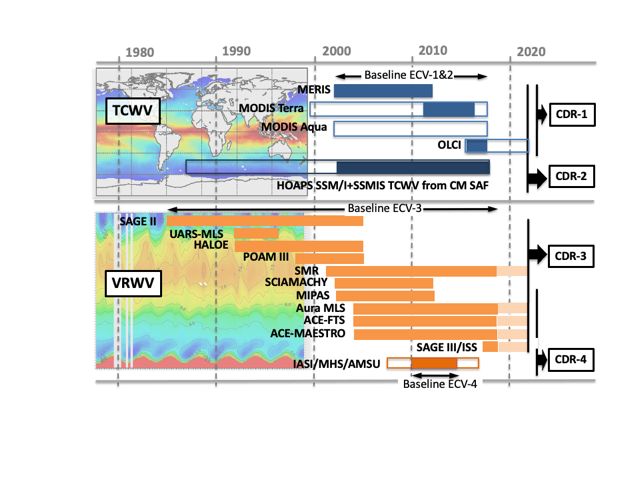
Figure 1: Key deliverables: The climate data records derived from a range of instruments include both total column (TCWV) and vertically resolved (VRes WV) information on water vapour.
CDR-1: Total column water vapour over land (CCI TCWV-land). A total column water vapour CDR that is based on near-infrared (NIR) observations from MERIS, MODIS and OLCI. The ECV spans the time period 2002 to 2017 with a spatial resolution of 0.05°/0.5° and as daily averages. Key challenges were harmonising the time series due to issues around calibration performance, long-term stability and inconsistency between the single sensor records.
CDR-2: Total column water vapour over land and ocean (CM SAF/CCI TCWV-global (COMBI)). CDR-1 is combined with ocean observations from microwave imager measurements (e.g. SSM/I and SSMIS) from EUMETSAT CM SAF. The combined product will span the time period 2002 to 2017 with a spatial resolution of 0.05°/0.5° and as daily averages. The combined product makes use of the spatial complementarities of the land-based NIR and ocean-based microwave observations without changing the characteristics of the original products. Thus, the combined product has global coverage and will be jointly released by Water_Vapour_cci and CM SAF. Key challenges are to fill coastal and ice covered areas and to achieve consistency between both products.
CDR-3: Vertically resolved water vapour in the stratosphere (CCI WV-strato). A vertically resolved water vapour CDR for the stratosphere will be merged using a range of ESA, third-party and NASA instruments (including SAGE II, HALOE, POAM III, Odin SMR, MIPAS, SCIAMACHY, GOMOS, ACE-MAESTRO, ACE-FTS and Aura-MLS) and spanning the time period 1985 to the end of 2019. This database will have monthly time resolution and represent a zonal mean database.
CDR-4: Vertically resolved water vapour in the upper troposphere and lower stratosphere (CCI WV-UTLS). A second vertically resolved water vapour CDR spanning the troposphere and the stratosphere and being resolved latitudinally, longitudinally and monthly will be merged from a tropospheric product (i.e. the IASI-based IMS product) and several stratospheric products from still-operating satellite limb sounders (Aura-MLS, ACE-FTS, ACE-MAESTRO). The key challenge is the merging across the tropopause, which is the interface between the troposphere and the stratosphere with very complex dynamical, physical, and chemical properties, greatly challenging the performance of EO instruments.
The derived CDRs will be validated and fully characterised by our validation team (Val) and then passed on to our climate research group (CRG) who will perform dedicated process and climate studies which aim at testing the usefulness of the new products and derive new knowledge related to the study of water vapour in the atmosphere.
Access and search ESA Climate Change Initiative data products via our dedicate Open Data Portal
Water Vapour – Total Column Water Vapour (version 3.2)
Available via the Open Data Portal:
- CCI TCWV-land
- Total column water vapour over land (CDR-1)
- This vertically integrated (total column) water vapour ECV, in units of kg/m², is a gridded L3 data product over land based on ESA (MERIS, OLCI) and NASA instruments (MODIS). The final dataset covers the period July 2002 to December 2017.
- CCI WV-strato
- Vertically resolved water vapour in the stratosphere (CDR-3)
- This vertically resolved water vapour ECV is a merged data product based on a range of ESA, third-party and NASA instruments including SAGE II, HALOE, UARS-MLS, POAM III, SAGE III, SMR, SCIAMACHY, MIPAS, Aura-MLS, ACE-FTS, ACE-MAESTRO and SAGE III/ISS and spans the time period 1985 to the end of 2019. The product is provided as zonal means and in units of ppmv (mixing ratios).
Available via the EUMETSAT CM SAF:
- CM SAF/CCI TCWV-global (COMBI)
- Total column water vapour over land and ocean (CDR-2)
- Available from https://doi.org/10.5676/EUM_SAF_CM/COMBI/V001
- The CDR-2 dataset is a global, i.e. land and ocean coverage, TCWV product in units of kg/m². It contains the CDR-1 over land, coasts and sea-ice and the HOAPS microwave imager based TCWV data over ocean. The HOAPS data are generated by EUMETSAT CM SAF. CDR-2 is released by the EUMETSAT CM SAF. The final dataset covers the period July 2002 to December 2017.
Arriving in Phase 2:
- CCI WV-UTLS
- Vertically resolved water vapour in the upper troposphere and lower stratosphere (CDR-4)
- This CDR consists of three-dimensional vertically resolved water vapour data, covering the troposphere and lower stratosphere from 2010 to 2014. The water vapour is based on IMS, MIPAS, ACE-FTS, ACE-MAESTRO, and Aura-MLS. The global product includes mixing ratios in units of ppmv.
Early access to preliminary datasets not yet published can be requested by contacting the science lead of the team in Contacts.
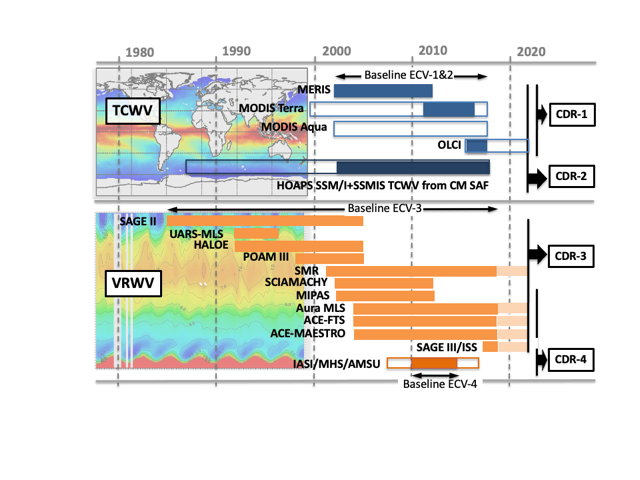
The Water Vapour project consortium is based on a close collaboration between the following partners including retrieval scientists (EO), data analysts (Val), system engineers (SysEng), and climate experts (CRG):
- Michaela I. Hegglin (science lead, Val) and Hao Ye (University of Reading, UK)
- Kevin Halsall (Telespazio UK) (project management)
- Maria de Farago (Telespazio UK) (project management)
- Marc Schröder, Rainer Hollmann and Hannes Konrad (DWD, Germany) (Val)
- Olaf Danne and Carsten Brockmann (Brockmann Consult, Germany) (SysEng)
- Rene Preusker and Jürgen Fischer (Spectral Earth, Germany) (EO)
- Richard Siddans and Brian Kerridge (STFC Rutherford Appleton Laboratory, UK) (EO)
- Kaley Walker (University of Toronto, Canada) and Chris Sioris (ECCC, Canada) (EO)
- Tim Trent and John Remedios (University of Leicester, UK) (Val)
- Daan Hubert and Jean-Christopher Lambert (BIRA-IASB, Belgium) (CRG)
- Hélène Brogniez (University of Versailles, France) (CRG)
- Christian Rolf and Patrick Konjari (Forschungszentrum Jülich, Germany) (Val)
- Kent Laurtisen (Danmarks Meteorologiske Institut) (DMI)
- Vinicius Barbose (Danmarks Meteorologiske Institut) (DMI)
- Jo Nielsen (Danmarks Meteorologiske Institut) (DMI)
- Giuseppe Zappa (Institute of atmospheric sciences and climate) (ISAC CNR)
The following partners contributed to Phase 1 of the project:
- Alexandra Laeng, Gabriele Stiller and Thomas von Clarmann (KIT, Germany) (Val)
- Ulrike Falk (DWD, Germany) (CRG)
- Jia He (University of Versailles, France) (CRG)
- Luis Gimeno and Jorge Eiras-Barca (University of Vigo, Spain) (CRG)
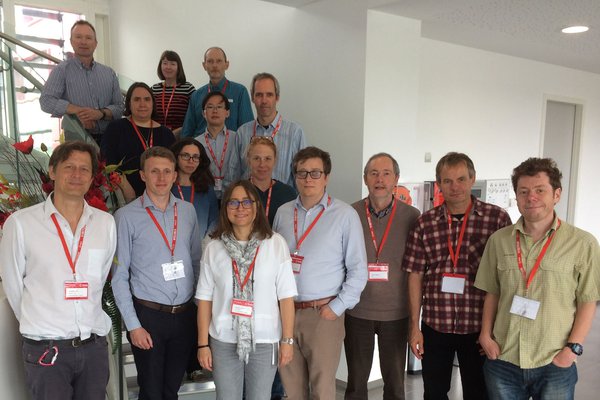
Key Water Vapour Project Publications
2025
- Konjari, P., Rolf, C., Hegglin, M. I., Rohs, S., Li, Y., and others., 2025. Technical note: Water vapour climatologies in the extra-tropical upper troposphere and lower stratosphere derived from a synthesis of passenger and research aircraft measurements, Atmos. Chem. Phys., 25, 4269–4289, https://doi.org/10.5194/acp-25-4269-2025
2024
- Trent T., Schröder M., Ho SP, Beirle S, Bennartz R, and others., 2024. Evaluation of total column water vapour products from satellite observations and reanalyses within the GEWEX Water Vapor Assessment. Atmospheric Chemistry and Physics. European Geoscience Union. 16 9667–9695. https://doi.org/10.5194/acp-24-9667-2024
2023
- Lauer, A., Bock, L., Hassler, B., Schröder, M. and Stengel, M., 2023. Cloud Climatologies from Global Climate Models—A Comparison of CMIP5 and CMIP6 Models with Satellite Data. Journal of Climate, 36(2), pp.281-311, https://doi.org/10.1175/JCLI-D-22-0181.1
- Trent, T., Siddans, R., Kerridge, B., Schröder, M., Scott, N. A., and Remedios, J., 2023. Evaluation of tropospheric water vapour and temperature profiles retrieved from MetOp-A by the Infrared and Microwave Sounding scheme, Atmos. Meas. Tech., 16, 1503–1526, https://doi.org/10.5194/amt-16-1503-2023
2022
- Eiras-Barca, J., Iago Algarra, Nieto R., Schröder M., Hegglin M.I., Gimeno L., 2022. Analysis of the main source regions of moisture transport events with the new ESA CCI/CM-SAF total column water vapour climate data record (v2). Quarterly Journal of the Royal Meteorological Society, 1–15, https://doi.org/10.1002/qj.4358 User Case Study
- He, J., Brogniez, H., and Picon, L., 2022. Evaluation of tropical water vapour from CMIP6 global climate models using the ESA CCI Water Vapour climate data records, Atmos. Chem. Phys., 22, 12591–12606, https://doi.org/10.5194/acp-22-12591-2022
- Jeffery, P. S., Walker, K. A., Sioris, C. E., Boone, C. D., Degenstein, D., Manney, G. L., McElroy, C. T., Millán, L., Plummer, D. A., Ryan, N. J., Sheese, P. E., and Zou, J., 2022. Water vapour and ozone in the upper troposphere–lower stratosphere: global climatologies from three Canadian limb-viewing instruments, Atmos. Chem. Phys., 22, 14709–14734, https://doi.org/10.5194/acp-22-14709-2022
- Kalakoski, N., Sofieva, V. F., Preusker, R., Henocq, C., Denisselle, M., Dransfeld, S., and Scifoni, S., 2022. Validation of Copernicus Sentinel-3/OLCI Level 2 Land Integrated Water Vapour product, Atmos. Meas. Tech., 15, 5129–5140, https://doi.org/10.5194/amt-15-5129-2022
2021
- Dorigo, W., Dietrich, S., Aires, F., Brocca, L., Carter, S., Cretaux, J.-F., Dunkerley, D., Enomoto, H., Forsberg, R., Güntner, A., Hegglin, M. I., Hollmann, R., et al (2021) Closing the water cycle from observations across scales: Where do we stand? Bulletin of the American Meteorological Society, 102(10), E1897– E1935. https://doi.org/10.1175/BAMS- D-19-0316.1
- Hegglin, M. I. et al. (2021) Overview and update of the SPARC Data Initiative: comparison of stratospheric composition measurements from satellite limb sounders. Earth Syst. Sci. Data 13, 1855–1903, https://doi.org/10.5194/essd-13-1855-2021
- Preusker, R.; Carbajal Henken, C.; Fischer, J. Retrieval of Daytime Total Column Water Vapour from OLCI Measurements over Land Surfaces. Remote Sens. 2021, 13, 932. https://doi.org/10.3390/rs13050932
2020
- Fadnavis, S. et al. (2020) A rising trend of double tropopauses over South Asia in a warming environment: Implications for moistening of the lower stratosphere. Int. J. Climatol. 41, E200-E215, https://doi.org/10.1002/joc.6677
- Popp, T. et al. (2020) Consistency of satellite climate data records for Earth system monitoring. Bull. Amer. Meteor. Soc., 101, E1948–E1971, https://doi.org/10.1175/BAMS-D-19-0127.1
Key contacts within the Water Vapour project.
- Scientific Lead:
- Michaela Hegglin – m.i.hegglin@reading.ac.uk
- Project Manager, General and Technical Support:
- Kevin Halsall – kevin.halsall@telespazio.com
- ESA Technical Officer:
- Michael Eisinger – michael.eisinger@esa.int
To run this example yourself, go to https://dashboard.climate.hub-otc.eox.at/. You can register for free.
The following links provide supporting graphics and animations relating to the Water Vapour project:
Global Mean Total Column Water Vapour:
https://www.youtube.com/watch?v=uf9VRKXfhGc
Water cycle:
https://www.esa.int/ESA_Multimedia/Videos/2022/05/Water_cycle
Latest news & events

CCI colocation & CMUG integration meeting 2026
Annual gathering of the CCI community for ESA programme updates, scientific progress, and forward-looking discussions.
Learn more
Working for ESA: procurement and proposal submission process
An Introduction to ESA Star - ESA's System for Tendering and Registration
Learn more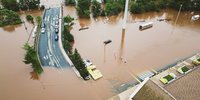
Climate Change & Cities: Open Competitive Tenders Launched
Two New City Research Calls On Urban Resilience To Climate Change Using Earth Observation Data
Learn more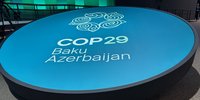
ESA at COP29
ESA is participating in COP29 to highlighting satellites' role in tackling climate change
Learn more
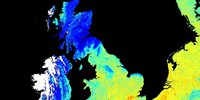
Land Surface Temperature 2024 User Workshop Save the date: 5th and 6th December 2024
Call for abstracts and registration
Learn more
Call for new projects: Additional Essential Climate Variables
New R&D procurement as part of ESA's CLIMATE-SPACE programme
Learn more
Open Competitive Tender for CLIMATE-SPACE Knowledge Exchange
ESA Tender Action Number: 1-12141. ESA Activity Number: 1000039650.
Learn more
Little Pictures winner announced at COP28
Results of Europe-wide climate data visualisation showcased
Learn more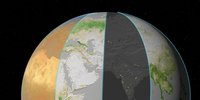
New Tender: CROSS-ECV ACTIVITIES Tender Action Number: 1-12062
New tender issued by the ESA Climate Office (Activity Number: 1000039196)
Learn more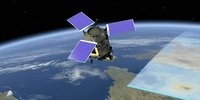
Harnessing Earth Observation for Climate Action
ESA in conversation Prof Jim Skea with IPCC Chair during the COP28 Earth Information day
Learn more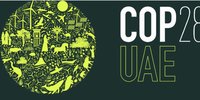
COP28: ESA Climate Office events
The Climate Office is contributing to several events at COP28, UAE, Dubai
Learn more














